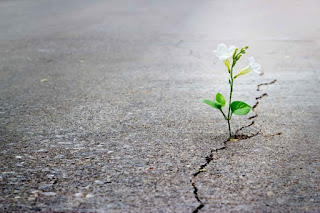When Hessay’s Siddhartha matched the
gold buckles on the shoes of the rich with his wait- fast- pray, Kamala
naturally laughed: For a woman of Kamala’s beauty cannot auction love for
nothing. Fasting in the Vedic civilization was a virtue. Those who fasted and
prayed received divine mercy but love is soulful food which fasting cannot
substitute. Fasting is self-denial: Love is self fulfilment. By denying the
basic elements or materials for sustenance you can never attain love or god.
Voluntary acceptance of pain is often thought of as appeasement of the
spiritual powers. The basic philosophy is: life is an endless drama of pain. Relief
can be given only by the divine powers. In the context of hunger, sickness and
fear the ‘wait-fast -pray’ policy of religious masters was an escapist
proposition for the ease of survival.
Fasting was always used as a
moral force against autocratic powers to arouse mercy , kindness and sympathy
in their stubborn hearts. Women always used it at home to bend the sympathy
waves of the menfolk to flow with relenting fury. Mahatma Gandhi made fasting a
moral weapon against the British Government during the Freedom movement.
Gandhi’s Ahimsa and Satyagraha made fasting a spiritual force. The world
admired it for it aroused the conscience of men who never thought beyond the
sword. This soulforce as he called this Satayagraha was passive. Yet it shook
the Empire to realize that physical power is not the ultimate force to
subjugate people. The poor, hungry masses have soulforce before which the gun
is not always effective. Fasting for Gandhi was an aspect of the Non –violence
of the brave. Voluntary acceptance of suffering to protest against the
suffering imposed by the British powers was not passive or expedient, it was a
positive counter energy to remind the British that if a nation can abstain
from essentials to claim legitimate freedom from oppression, it can go to any
length to get what it loves most. Fasting was a political weapon for Gandhi.
Its novelty astounded the world.
But after 1947 when India became
a free country the same ‘followers’ of Gandhi used the political weapon against
their own people to arm twist the elected rulers of the people. Anasana, protest fast, became so common
that it was an emotional blackmail of the clever people and soon lost its moral
force. But in India fasting as a political weapon has not been totally
discarded. Anna Hazare, a Gandhian, perhaps brought fasting to its last gasps
by overuse and abuse.
But religious rituals and practices
still include fasting as an appeasatory self- flagellation in most Hindu homes.
Almost every Monday is a fasting day for devotees of Shiva. Tuesdays and
Saturdays are for Hanuman. Those who cannot fast at least don’t eat meat or
fish on these days. Besides these all festive occasions are fasting days for Hindus.
The Nava Ratri is very auspicious for people and men and women fast for the
good of the family. The belief is life cannot go on without divine blessings
and appeasement of gods, therefore, is a bounden duty. The hindu widows fast on
all occasions for what they know not. If life has denied things in this birth
the next birth must be better and for that advance merit must be earned by
self- denial. It seems pre paid service is the order of things.
In Islam too Ramzan is followed
for a month. During day time no food or water is taken by the devout muslims.
Kartik for the hindus is as important as
Ramzan for the Muslims. A month of prayer –fast keeps the elderly (even middle
aged) and the widows in particular glued to the temples. Suppression of all
human desires and sublimation of instincts fortified by month long fasting
reserves space for the individual in the world soul. Modern science, the
knowledge society, the pragmatics of new knowledge have no impact on these
hindu practises. If you argue with a Vrindavan priest, he will flatten you with
the argument that fasting cleans up the body system, prayers purify your soul and purity is the only merit man should crave for : life is a continuum,
death is a pause to permit the spirit to put on
a new garb, These rituals are pre ordained requisites for an improved
situation in your next birth. One has no questions to know the form, nature and
content of purity for a snub would be the answer.
Ask any medical practitioner, his
patients mostly suffer from acidity, malnutrition and anaemia; and the cause is
frequent fast and irregular food habits. But the devotees of next Dream Life
will smile away the comments and go to the puja room gulping a few tablets. Religious
faith is required for peace of mind and comparative moral purity in living; No
debate. But self- denial, I think, is too harmful to the body and soul. Let’s
sing the praise of gods in full belly and in full throated ease.










